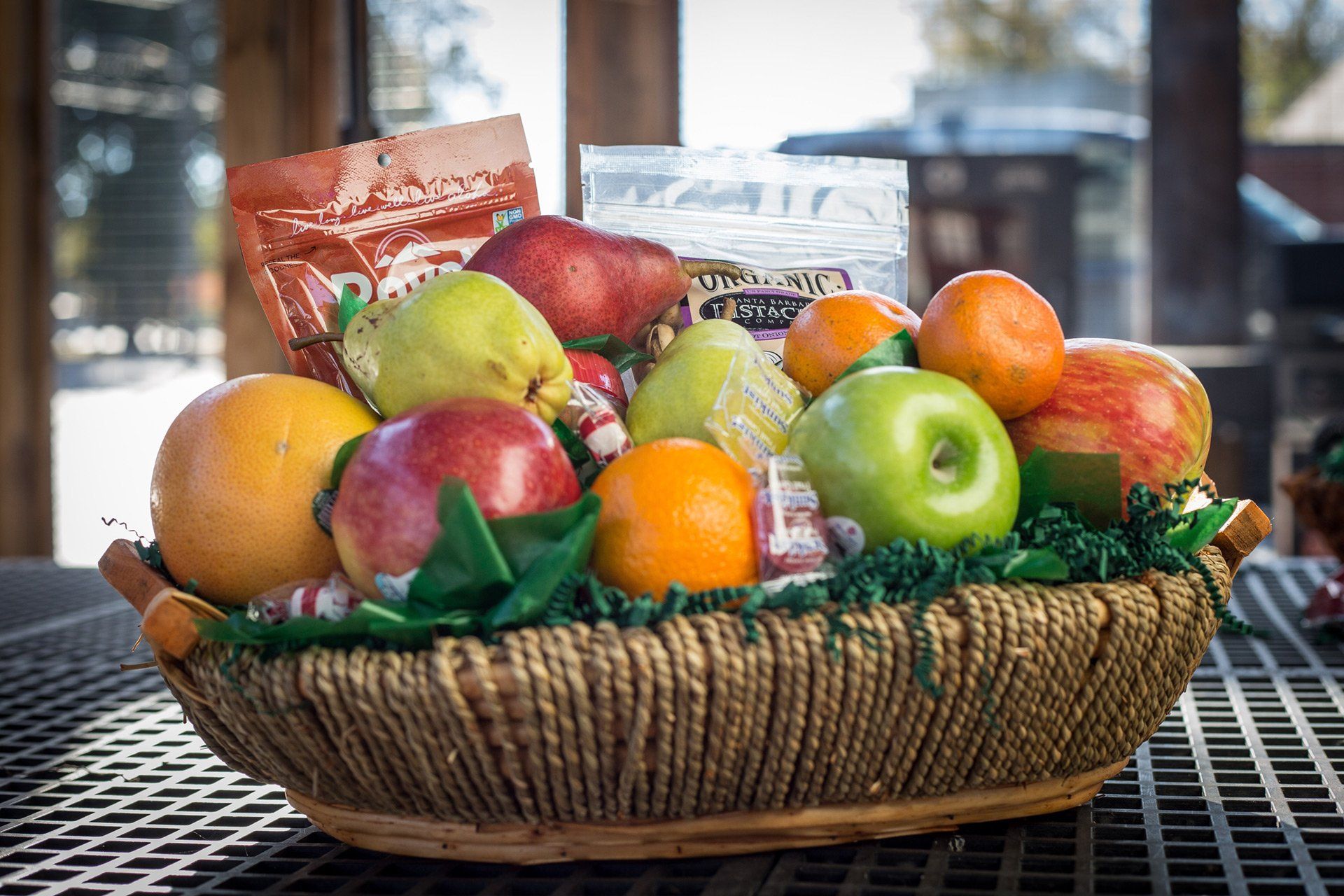Cooking Oils: Which Ones to Use & When to Use Them

Photos by Glenn Hall Photography
Heart-Healthy Fats and Oils
Gone are the days when one’s only choice for cooking oil was a bottle of old-fashioned vegetable oil. We now find ourselves in the days of nearly unlimited options for oils and fats of all kinds, both good and bad.
So with so many oils on the market, how does one know which variety to use when? Which oils are ideal for baking? Which can be used for fried foods? To answer all of your questions related to cooking and baking with fats and oils we’ve prepared a helpful guide to all of the flavors of oils you’ll find lining the shelves of Midtown Market.
Almond Oil
Origins : Extracted from sweet almonds. (Sweet almond oil can be used for internal use. Bitter almond oils should not be used for cooking, as they are intended for external use only.
Flavor : Smooth, buttery flavor. Also described as a sweet, nutty flavor
Benefits of Almond Oil:
- Refined almond oil is best for cooking due to its high smoke point.
- Unrefined almond oil should be used as a finishing oil for salads, fish, vegetables and cream soups. It will not do well when heated to high temperatures,
- Adds a nutty, toasted flavor to baked goods such as cookies, cakes and muffins. Just replace ¼ cup of vegetable oil with a ½ cup of almond oil when baking.
- Contains mild antioxidant properties
- Contains high levels of Vitamins E, B and P
- Contains monounsaturated and linoleic fatty acids, Omega 6 and Omega 9
Canola Oil

Canola Oil is a safe bet for both cooking and baking.
Origins : Canola plant seeds
Flavor : Mild, neutral flavor
Benefits of Canola Oil :
- Low in saturated fat, making it a heart-healthy choice
- High in monounsaturated fat
- Good for cooking and baking. With a high smoke point, canola oil can be used in frying and sautéing.
Coconut Oil

Coconut Oil is delicious, but be careful to use it in moderation if you're trying to lose weight.
Origins : Extracted from mature coconuts
Flavor : Sweet and nutty
Benefits of Coconut Oil:
-
Great alternative to butter. This is helpful in a vegan diet.
-
Excellent flavor to add to stews, curries, fish and baked goods
Things to Consider : Coconut Oil is high in saturated fat, so use in moderation. While good for baking, it may not be ideal for frying, as it has a low to medium smoke point.

Coconut Oil's sweet, nutty flavor makes it a great substitute to use in baked goods.
Grape Seed Oil
Origins : Extracted from grape seeds. Often, a byproduct of winemaking
Flavor : Neutral
Benefits of Grapeseed Oil:
- High in polyunsaturated fats, such as Omega 6 fatty acids.
- Moderately good source of Vitamin E
- High smoke point makes it a good substitute for cooking oils

Grapeseed Oil's neutral flavor makes it a great oil to use in cooking a variety of dishes.
Olive Oil

Olive Oil has proven to a great all-around and healthy oil for daily cooking.
Origins : Extracted from ripe olives that have been pressed
Flavor : Robust and sometimes fruity. Some variations may have a smooth, buttery taste.
Benefits of Olive Oil:
- Rich in Omega 3 fatty acids
- Virgin, or unrefined olive oil, is a healthy alternative to butter and margarine.
- Extra virgin olive oil is the highest quality olive oil produced.
- Has been shown to reduce the risk of heart disease and stroke, due the high content of monounsaturated fats.
- Delicious flavor and light texture makes it perfect for use in dipping sauces, spreads, salad dressings and marinades and stir frying veggies.
Things to Consider : Olive Oil can be used in some baked dishes, but be sure to find an oil that best suits your taste buds, as some olive oils can have a more pungeant, bitter taste that may not be ideal for baking.
Peanut Oil

Looking for a delicious addition to your next stir-fry? Try this!
Origins : Derived from peanuts or groundnuts
Flavor : Nutty
Benefits of Peanut Oil:
- Rich in Omega 3 fatty acids
- High in monounsaturated fats
- Contains Vitamin E
- High smoke point makes it a good oil for frying meats and vegetables
- Delicious flavor to add to stir-fry and other Asian-inspired dishes
- Most peanut oil that has been refined in the United States does not contain the allergic producing proteins that many with peanut allergies seek to avoid.
Pecan Oil

Remember to properly store your pecan oil to preserve its flavor and to extend its life.
Origins : Extracted from pecans
Flavor : Neutral, tends to take on the flavor of whatever you’re cooking
Benefits of Pecan Oil :
- Pure virgin pecan oil contains monounsaturated fats
- Lower in saturated fats than oils such as olive oil, peanut oil and corn oil.
- It’s a great ingredient to use in making homemade mayonnaise
- Has a high smoke point (even higher than that of peanut oil and soybean oil) so it’s good for cooking
Things to Consider: Pecan Oil will quickly become rancid if not properly stored. See label for instructions.
Safflower Oil

Use Safflower Oil to enhance the flavors of your salads and dressings.
Origins : Safflower plant seeds
Flavor : Neutral
Benefits of Safflower Oil :
- High in polyunsaturated fat and monounsaturated fat
- Enhances the flavor of salads and dressing
- Suitable as a cooking and frying oil
Sesame Oil
Origins : Sesame seeds
Flavor : Distinctively nutty
Benefits of Sesame Oil :
- Used frequently to enhance flavors in a variety of Asian dishes
- Rich in monounsaturated fats and polyunsaturated fats
- Perfect for use in stir fry, dressings, sauces and searing meat

Sesame Oil can be used to sear meat on the grill or on the stovetop.
Soybean Oil
Origins : Soybean seed
Flavor : Modern varieties are generally tasteless and odor free. Those strong flavors of the past are behind us.
Benefits of Soybean Oil :
- High in omega-6 fatty acids
- Fine to use in salad dressings or even in making homemade granola bars
Things to Consider: Not all varieties are ideal for frying. However, there are some, which possess high levels of monounsaturated fats. These are generally better for frying foods.
Sunflower Oil
Origins : Sunflower seeds
Flavor : In an unrefined form, sunflower oil has a distinct flavor. However, those that are refined tend to be more neutral.
Benefits of Sunflower Oil :
- High in polyunsaturated fat
- Good for use as a salad dressing or to use as cooking oil
Things to Consider: When frying, use a refined sunflower oil that is high in monounsaturated fats. These varieties are available on the market today.

Sunflower Oil works great in salad dressings.
Walnut Oil

Try drizzling Walnut Oil over a pasta dish or salad to enhance the flavor.
Origin : Derived from pressing walnuts
Flavor : Deep, nutty flavor
Benefits of Walnut Oil :
- Rich in omega-3 fatty acids
- Good for salad dressings and drizzling over various dishes
Things to Consider: Walnut Oil’s low smoke point makes it a poor choice for frying and cooking. It must be stored in the refrigerator to avoid turning rancid.

Photo by: Glenn Hall Photography
Conclusion
Oils provide our bodies with many of the nutrients they need to be healthy and strong, including Vitamin E, linolenic acid, an omega-3 fatty acid, and linoleic acid, an omega-6 fatty acid. While all of these things are ultimately good for us, oils must be consumed in moderation in order to maintain a healthy, balanced diet.
For more information on fats and oils, visit the University of Kentucky Extension Service.

Find these varieties of organic and all-natural oils and more at Midtown Market.










